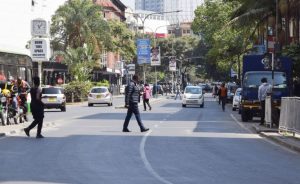Liberia: Mother’s Cry for Justice – Family Shattered By Rape, Incest, and Abandonment

Zota District — In the fading evening light, Gorpu Yarkpawolo (not her real name) sits barefoot outside a neighbor’s home, her three young sons gathered around her. Tears roll silently down her cheeks as she recounts the horror that has haunted her family since 2022. Her voice quivers–not with anger, but with a quiet, desperate resolve to save her children’s future from the shadows of unspeakable trauma.
Once sustained by modest farming in Zota District, Gorpu’s family lived a peaceful, humble life. That changed drastically when her 15-year-old daughter–now 18–Mary Flomo (also not her real name), became the victim of repeated sexual violence. The alleged perpetrator: her own father.
According to a 2022 medical report from the Belefanai Health Center, the teenager was five months pregnant at the time of diagnosis. She told police investigators that her father, Janteh Togbah, had threatened to kill her if she spoke out. The pregnancy was later terminated legally in Gbarnga with her mother’s consent, but the emotional and psychological wounds remain fresh.
As news of the abuse broke, Janteh fled across the border into neighboring Guinea. He has remained at large since, leaving Gorpu to care for their four children alone–devastated, stigmatized, and without support.
A Family in Crisis
Facing mounting shame and danger, Gorpu relocated with her children to Gbarnga in search of safety and anonymity. But life in the city has offered little reprieve. Today, the family resides in a dilapidated one-room structure, barely making ends meet. Gorpu depends on a small garden and the street sales of her young sons, who hawk donuts to pay for food and rent.
Despite her circumstances, she remains focused on giving her children a chance to reclaim their futures.
“This is not just a story of suffering,” she said, her voice breaking during an interview. “It’s a cry for justice–and a call for help. I want my children to go to school and live a normal life.”
Her daughter, now living in temporary shelter in Monrovia, remains in hiding while receiving limited support. Gorpu’s three sons, ages 9 to 16, continue to share a cramped space with their mother in Gbarnga. Their situation is critical, and their needs are urgent–especially for housing, education, and basic livelihood support.
A National Pattern of Abuse
Gorpu’s story is not isolated. Sexual and domestic violence continue to ravage Liberian communities, worsened by the country’s legacy of war and entrenched patriarchy.
According to the Ministry of Gender, Children, and Social Protection, rape accounted for nearly 74% of all gender-based violence cases reported in 2022. Despite the 2019 Domestic Violence Act, which criminalizes various forms of abuse, enforcement remains weak. Victims often face stigma, threats, and systemic neglect, while perpetrators evade justice with impunity.
The World Health Organization’s 2002 report revealed that between 61% and 77% of women and girls in Liberia were raped during the country’s brutal civil war. Today, that trauma persists in homes, schools, and communities, with many survivors still suffering in silence.
Though the government has taken steps–like establishing Court E to fast-track sexual abuse cases and declaring rape a national emergency in 2020–these measures are falling short. Delays in prosecution, under-resourced courts, and limited survivor support services continue to undermine justice and accountability.
Gaps in the System
Non-governmental organizations (NGOs) have stepped in to provide some support. Groups like Men Against Rape and Domestic Violence (MARDV) and Just A Girl Initiatives (JAGI) run awareness campaigns, offer psychosocial counseling, and advocate for systemic reform. However, the absence of long-term safe homes, comprehensive rehabilitation services, and sustainable financial aid continues to leave survivors and their families vulnerable.
According to Bong County Gender Coordinator, Madam Musu M. Mulbah, both Gorpu and her daughter initially received limited assistance–mostly counseling and basic supplies–from a partner NGO. But that support has since dried up.
“They were given short-term help,” she confirmed. “But right now, they are on their own. We’re appealing to humanitarian organizations, local leaders, and the public to urgently support this mother and her four children.”
Voices of the Forgotten
One of the most heartbreaking perspectives comes from Paul (not his real name), the 16-year-old second-born son of the family. He dreams of completing school and supporting his siblings and mother.
“It’s hard to focus in school when we’re always worried about rent or food,” he said. “But I want to help my mom and take care of my sister and brothers. I just want a place where we can live in peace.”
His resilience is remarkable. But his words are also a sobering reminder of the cost of inaction–and the potential that could be lost without intervention.
A Plea for Justice and Humanity
Gorpu’s family needs more than charity. They need justice. They need protection. And they need a system that ensures perpetrators are prosecuted, survivors are rehabilitated, and families like theirs are not forgotten.
As this investigation continues, one question looms large: How many more families must suffer in silence before action is taken?
At just 18, Mary’s story already embodies the grim reality faced by too many young girls across Liberia. Her case–and the impunity of the accused–underscores the urgent need for justice, accountability, and sustainable support systems.
By Liberian Investigator.



